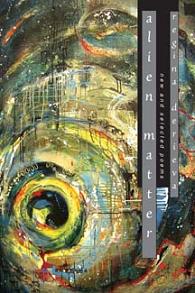Regina Derieva has published many books of poetry, essays, and prose. Her most recent book is Sobranie Dorog: selected poems and essays in two volumes (“Aletheia”, St Petersburg. 2005). Derieva's book of poems in English translation, Alien Matter, is forthcoming from New York based Spuyten Duyvil. Her works have been translated into English, Swedish, French, Chinese, and Italian. A compact disc with her readings in Russian of selected poems was issued in 1999. Derieva's work has appeared in the Modern Poetry in Translation, Poetry East, Cross Currents, Ars Interpres, Salt, Notre Dame Review, as well as in many Russian magazines. She has translated poetry by Thomas Merton and contemporary American, Australian, British, Polish, and Swedish poets. Regina currently lives in Sweden.
Les Murray wrote about Regina Derieva’s poetry:
“Science teaches that eighty percent of the universe consists of dark matter, so called. Regina Derieva learned this same fact in a very hard school. She does not consent to it, though. She knows that the hurt truth in us points to a dimension where, for example, victory is cleansed of battle. Her strict, economical poems never waver from that orientation.”
 |